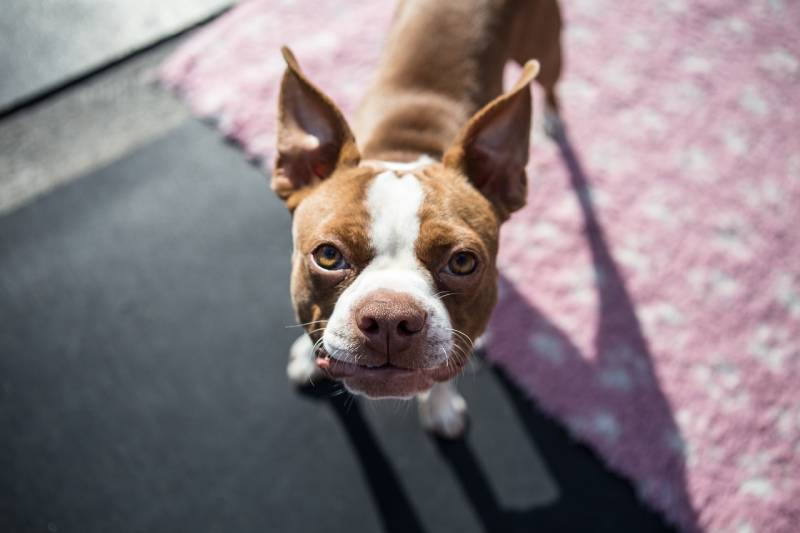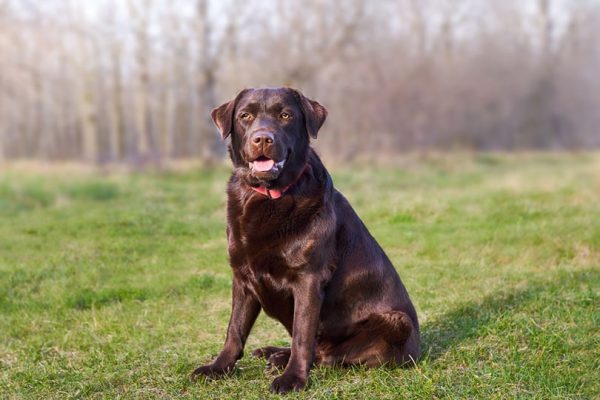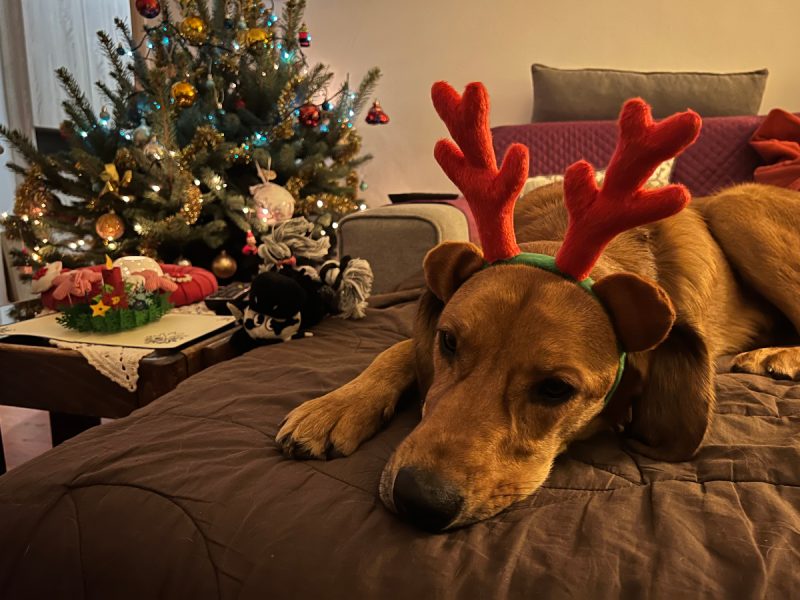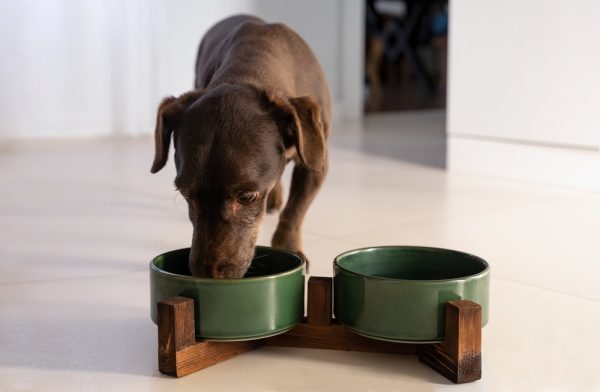In this article
View 2 More +No dog is ever happy to be left alone for too long. But some breeds do tend to tolerate being left alone better than others. On average, Boston Terriers can be left for 4–5 hours a day. Puppies should not be left longer than a couple of hours. There is individual variation to this depending on your dog and their physical and emotional needs. And, it can take time to get your dog used to being left regularly.
Below, we look at the Boston Terrier’s tolerance of being left home alone and what you can do to help make the process easier.

Alternatives to Leaving Them at Home
It’s not always possible to take breaks from work to come home and walk your dog or have a family member come over every day. Alternatively, you can use a doggy daycare facility or a pet-sitting service. With doggy daycare, you send your pup off to daycare, where it will spend time with other dogs and enjoy some human contact over the day. Or a pet sitter can come to your home and spend an hour with the dog in the middle of the day. They can walk your Boston Terrier, make sure they’re fed, and give them some attention.
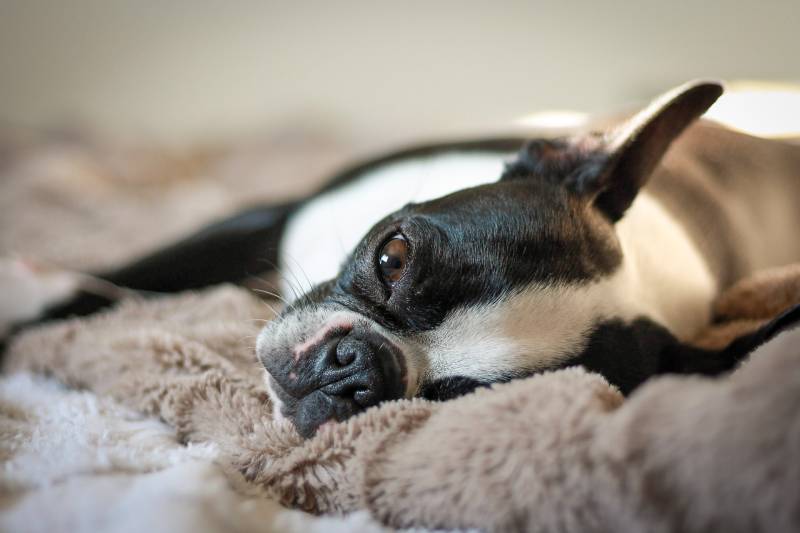
How Long Can You Leave a Boston Terrier?
How long you can leave a Boston Terrier does depend on several factors. Puppies should not be left alone for long, and you should build up to longer periods alone. Healthy adult Boston Terriers may be left for up to 4–5 hours reasonably comfortably and without too many incidents or accidents. Senior dogs and some dogs with stomach problems or other health problems may not cope as long.

Top 9 Tips When Leaving Your Boston Terrier Alone
The following tips will help if you need to leave your Boston Terrier for longer than a couple of hours.
1. Potty Training
Puppies shouldn’t really be left alone for longer than a couple of hours at a time. Puppies still don’t have great bladder control and will usually need to pee every hour or two. You can put pads down and provide your pup with a toilet area, but it will make potty training at a later date harder, and it is important to potty train your dog before you leave them regularly.
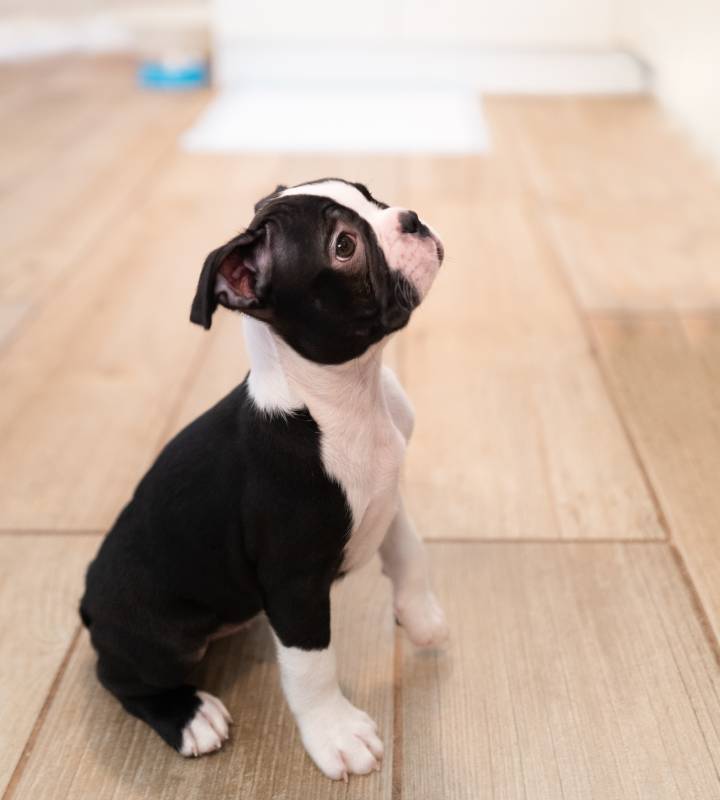
2. Background Noise
Many dogs find it comforting to have the radio on at a low level to provide background noise when alone. It can also muffle any noises from outside that may startle them while you’re out.
3. Offer Toys
As well as the threat of them peeing and pooping indoors, you also need to counter the onset of boredom. A bored dog is more likely to feel separation anxiety and it may lead to destructive behavior. Provide a good number of toys, ideally including puzzle or treat toys. These are very good at keeping a dog’s attention and will help relieve boredom at least until the food has gone.
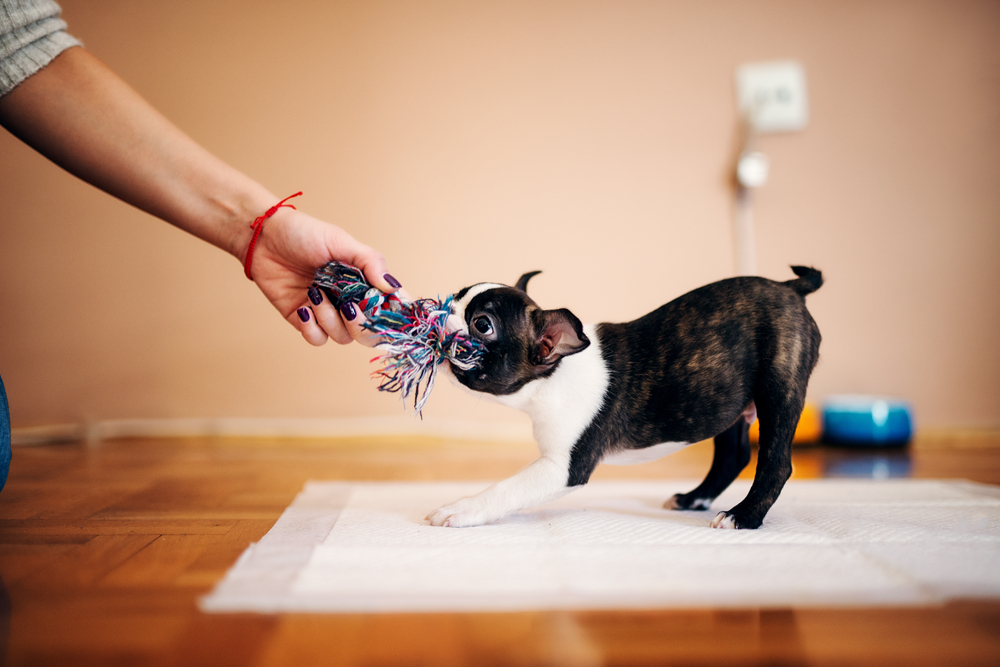
4. Put Food and Water Down
Dogs should always have access to clean, fresh water whenever they want it, and this is especially true when you are out of the house. Fill a bowl and make sure it is filled every time you leave the house. You may also want to put a bowl of food down so your dog will have something to eat. If you are returning at mealtimes, you can give your dog a treat before you leave, ideally something long-lasting, and this will help with boredom and will take your dog’s mind off the fact you’ve gone out.
5. Start Gradually
Start by leaving your puppy for a few minutes. Go out of the front door as though you were leaving and just walk around the house to see how your dog reacts. Don’t make a fuss when you leave or when you get back.
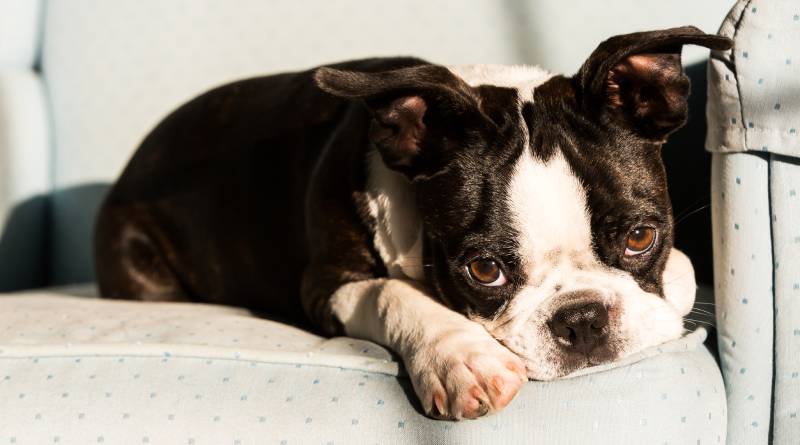
6. Practice
Continue leaving your dog a few minutes at a time before increasing the length of time you’re gone. Try 15 minutes, then half an hour, then an hour, and so on.
7. Exercise First
Hopefully, if your dog is exhausted when you leave the house, it will sleep through the whole ordeal. Get your Boston Terrier’s collar and leash and take them on a decent walk before you leave. Make sure you provide water and also leave some toys so they will have something to entertain them if they wake up.
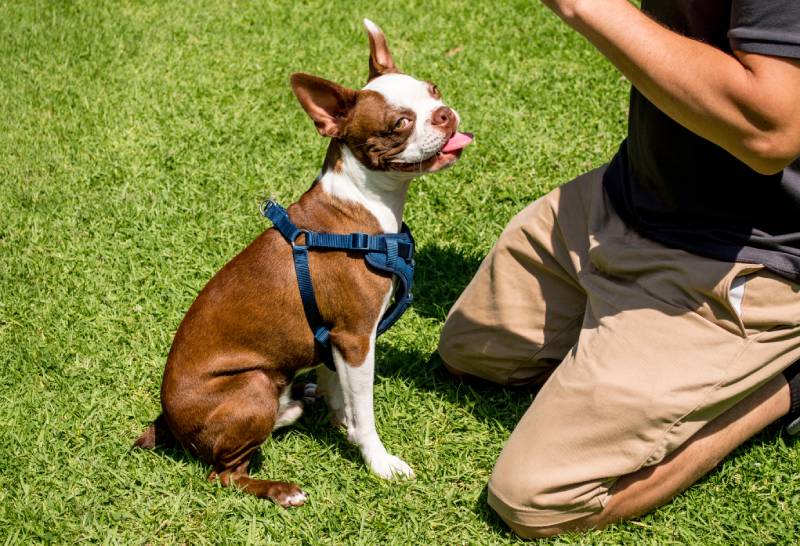
8. Don’t Make a Fuss
When you’re leaving, especially if you are still new to leaving your young dog at home, it can be tempting to make a big fuss of them before you leave. This can be counterproductive, though, because it heightens feelings of anxiety and stress.
9. Don’t Reprimand Your Dog
Refrain from telling your dog off or shouting at them, and never physically punish a dog if they have peed or pooped in the house when you get back. You don’t want to encourage the behavior so you should clean it up and carry on as normal, but if you scold your dog, it may become afraid to pee and poop and look for ways to hide it. It can also be another cause of stress.

In Conclusion
It is possible to leave a Boston Terrier alone. Generally, it is recommended that a Boston Terrier not be left for longer than 4 hours at a time, although some owners do successfully leave them longer. Dogs are social animals and need regular company and attention, without it they become lonely and bored. This can lead to destructive behavior, inappropriate toileting, and to depression and anxiety in your dog. Boston Terriers, as with all breeds, can suffer from separation anxiety.
Puppies should not be left longer than an hour or two. When you do leave your dog, provide toys for entertainment, food and water for sustenance, and try to ensure they are exercised before you leave.
Pet cameras can be a great purchase to give you peace of mind that your pup is safe and happy when they are left alone.
Featured Photo Credit: safepaws, Pixabay
